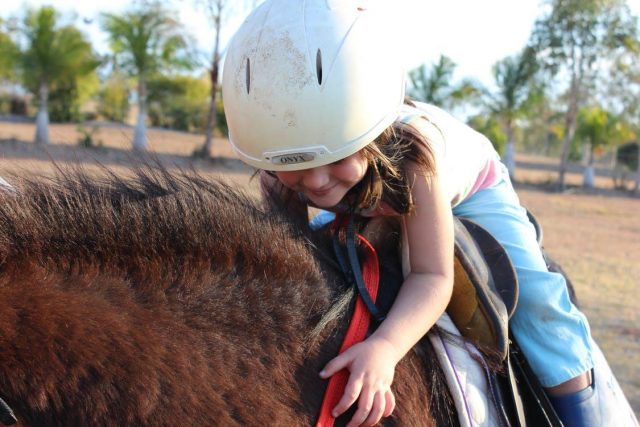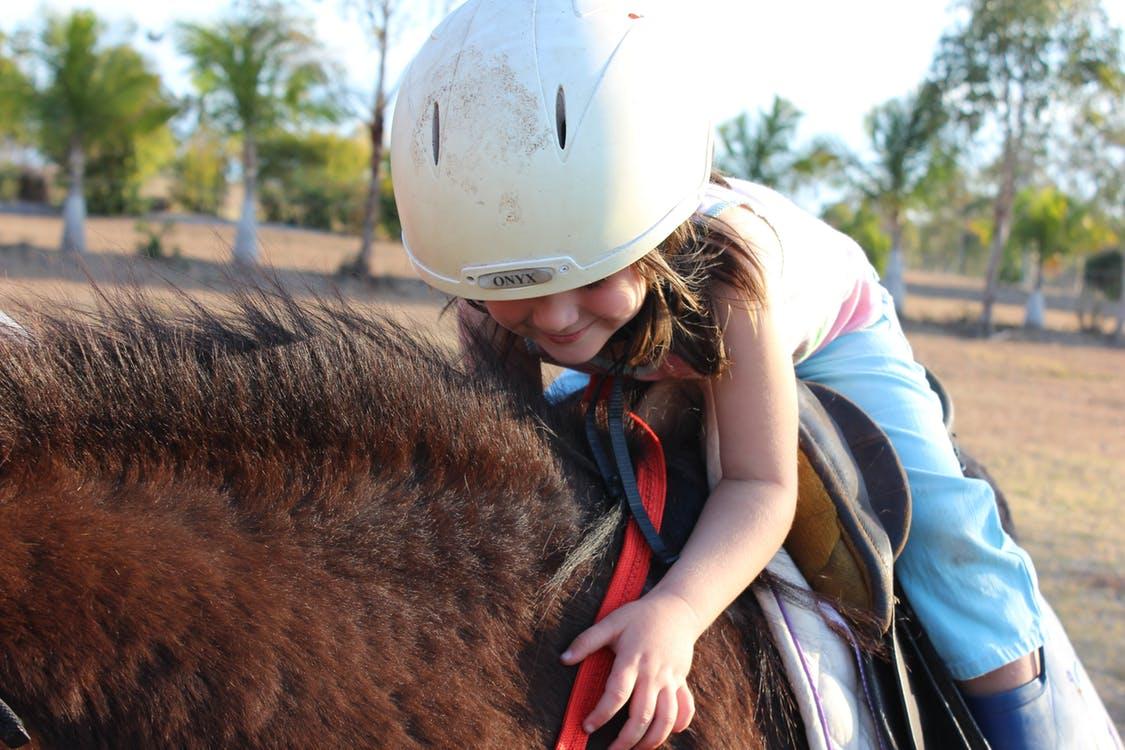
#TBT: Why Horses Are a Child Therapist’s Best Friend
Horses have so many gifts to give. Devin Morrissey elaborates.
Horses have long served as lesser known but still effective animal therapists. They have the unique ability to mesh together the physical, mental, and emotional well-being of their human companions in such a way that they provide a distinct form of animal therapy.
Because they can seem less accessible and are less well known to those looking for resources for their disabled or special needs child, horses at times leave some skeptical of their abilities. However, what research and personal narrative attest to time and time again is the fact that they not only can hold their own when helping those with disabilities, special needs, and trauma, but they often stand above the rest in doing so.
Physical Strength
Horseback riding is one of the few forms of animal therapy where there is naturally a physical element. Not only that, but the level of physical demand can vary from fairly gentle to very difficult. What that means is there’s a wide array of activity levels to accommodate individuals with a variety physical challenges.
Horseback riding has been shown to improve the range of motion in the joints of children with disabilities, assist with pain management, and of course, builds muscle and strength across the board.
Horseback riding with the intent of making physical strides falls under two categories, and it’s important to make the distinction between the two:
Therapeutic Riding: Therapeutic riding is when a non-therapist instructor gives riding lessons in a recreational format with the hope of achieving the aforementioned benefits.
Hippotherapy: Hippotherapy is far more medical in its approach. According to Mark Lieber for CNN, “Hippotherapy is a specific type of intervention in which physical therapists, recreational therapists, occupational therapists or speech and language pathologists use the movement of the horse to improve the rider’s posture, balance, coordination, strength and sensorimotor systems.”
While both can be helpful, families who reap the most rewards are those who look into both and make a personal, informed decision on behalf of their child.
Mental Discipline
As with all things that require practice to achieve excellence, horseback riding is a valuable way for individuals to hone their mental discipline, especially if they find it challenging to do so in traditional settings.
According to the University of Cincinnati, the largest category of disabled students at 36% is those who struggle with specific learning disabilities. With that in mind, what instructors and therapists are finding is that beyond the focus riding requires, it also provides a backdrop for those with special needs and disabilities to see positive traits exemplified in their equine companions. For example, patience, companionability, and the horse’s own focus are on display.
One study even found that equine-assisted psychotherapy was successful at improving hyperactivity and impulsiveness in kids, allowing them to achieve better focus and the ability to stay on task for longer periods of time.
Emotional Bonding
Anyone with any equine experience at all knows horses are easy to bond with. But for those with special needs, the bond that horses provide often meets a need that isn’t being met elsewhere.
“A handful of psychologists are even using horses in treating a variety of mental and emotional problems, from troubled teen-agers and young sex offenders to the sexually abused and people with anorexia. These psychologists say riding gives troubled people feelings of being in control and teaches power through gentle behavior. Antisocial teenagers must curb aggressive behavior to win a horse’s cooperation. Victims of abuse can develop trust in a horse,” wrote Barbara Stewart for The New York Times.
Indeed, the research available demonstrates that equine therapy can combat issues connected to mental illnesses, learning disabilities, and difficulties such as depression, withdrawal, ADHD, boundaries, communication, and interpersonal effectiveness.
This is amazing given the fact that ,especially in trauma-related behavioral problems, kids are susceptible to developing destructive coping mechanisms Equine therapy gives them the space they need to foster beneficial emotional health.
As with other forms of animal therapy, equine therapy is distinct in that it can be implemented by families in a non-official format that compliments what happens in an official one. Kids can visit and care for their equine therapy buddies outside of lesson time. Parents with kids who thrive in the camp setting could potentially take their own horse, load up the truck camper, and head out for family camping trips.
Hopefully, as therapists and instructors continue to utilize horses for their healing potential, more people will recognize the role they can play and thus more people will also find help and wellness. Increasingly, things like equine camps are allowing families to try it out for the short term to see how well it works.
Horseback riding and wellness have been paired since the time of the ancient Greeks, and from then on history demonstrates examples of their therapy-enhancing abilities. As we continue to understand the intricacies of disabilities, special needs, and trauma, we will no doubt also better recognize how our equine relationships can far transcend the recreational or professional, and be powerful means of physical and mental healing.
Devin Morrissey dreams of writing abroad, but he’s settling for writing on the road. You can find him on Twitter or across the Pacific Northwest, but tweeting him is probably easier.







Leave a Comment